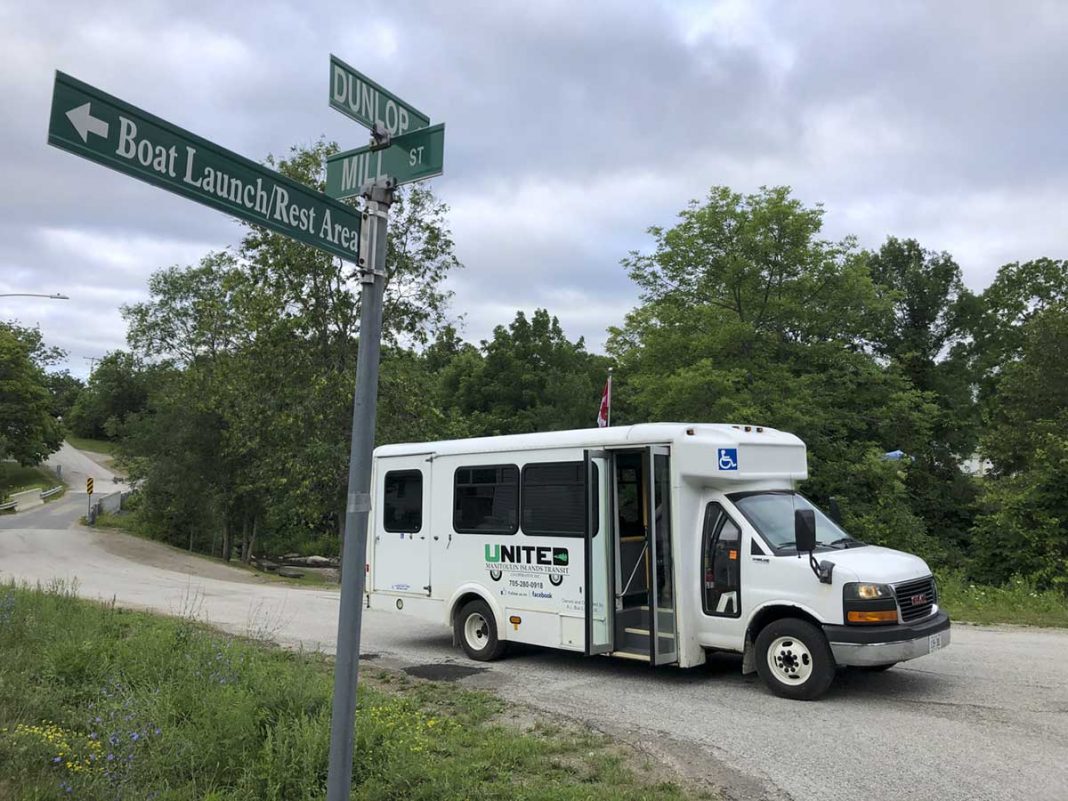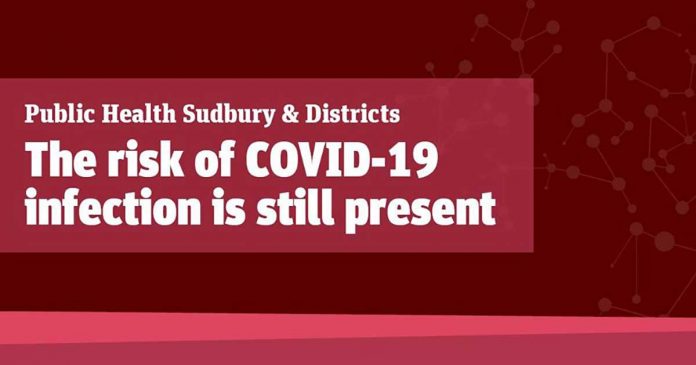MANITOULIN – The lack of public transportation has plagued development in Northern Ontario since the days the region was called “New Ontario,” with declines in transportation options far outstripping any improvement in recent years.
An initiative of the previous Liberal provincial government saw a significant investment in community transportation which led to the creation of United Manitoulin Islands Transit, a co-operative seeking to create a sustainable public transit model to serve Manitoulin’s communities.
Although the COVID-19 pandemic threw a wrench into the rollout of the transportation initiative, UMIT has announced it is restarting its service this March and that it has entered into a partnership with Montreal-based Blaise Transit to provide an on-demand solution UMIT hopes will provide “affordable, accessible and cost-efficient public transit.”
UMIT executive director Joahnna Berti explained that Blaise Transit is providing the on-demand platform and transportation planning knowledge to UMIT
“Once deployed in March, the on-demand, artificial intelligence-powered service will connect South Bay (Dooganing) residents, a community within Wiikwemkoong Unceded Territories, to other areas of Wiikwemkoong, Manitowaning and the rest of Manitoulin Island via UMIT’s fixed bus line,” said Ms. Berti.
“Manitoulin Island boasts several characteristics that make it ideal for on-demand transit,” pointed out Ms. Berti. “First, it’s enormous. Driving from one end of the Island to the other takes four hours round-trip. Second, it’s sparsely populated, with multiple economic, cultural and community areas across the Island. Such distance between people and place renders public transportation challenging.”
Those challenges have been increased dramatically by the unexpected withdrawal of the Ontario Northland bus service to the Island that had been launched by the province with much fanfare in 2018. That withdrawal forced UMIT to realign its strategic and tactical planning, noted Ms. Berti.
Dooganing is located on the southeastern tip of Manitoulin Island in Wiikwemkoong Unceded Territories and is distant from essential community services, requiring a car, or carpooling, to access the rest of Manitoulin Island, she explained. “Our pilot project remedies this by providing both stop-to-stop and door-to-door services, connecting residents to other communities in Wiikwemkoong and the UMIT fixed bus line. Additionally, Blaise’s analytics tools will enable UMIT to track and analyze ridership data, providing them with a clear window into passenger needs and insights to adapt UMIT’s operations for future growth.”
According to a release announcing the partnership between UMIT and Blaise, the agreement “implicitly recognizes that the transit challenges faced by Wiikwemkoong are not unique. UMIT is hoping to become part of the long term solution for affordable, reliable human travel for folks seeking affordable intra-community transit and connectivity to urban regions. Through our alliance with Blaise in the pilot phase, we’ll observe if on-demand services can help remedy the problem.”
“UMIT has been inspired working with the innovation and creative transit solutions offered at Blaise,” noted Ms. Berti. “We are excited about the opportunity to pilot an on-demand transit system in Wiikwemkoong that will connect passengers to UMIT’s fixed-route service and the wider community on Manitoulin Island. We envision a completely new way of thinking about human travel that will connect our residents with vital services and contribute to revitalizing our local economy.”





